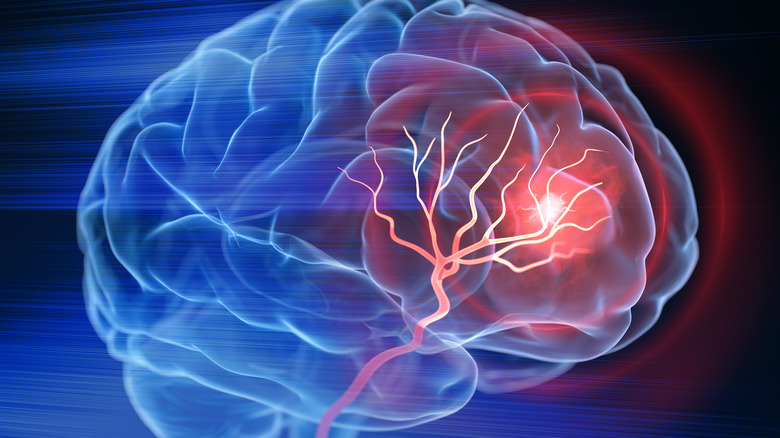High Cortisol And Cushing's Syndrome: What's The Connection?
If the first word that comes to your mind is "stress" when you hear the word "cortisol," you are not alone. Many people associate cortisol with the bad type of stress that makes you tired, weak, and maybe even sick. However, cortisol is perhaps one of the most misunderstood hormones in the human body.
In a 2019 study published in Chronic Stress, the late neuroendocrinologist Bruce McEwen examined how cortisol plays a role in bodily functions ranging from stress and brain plasticity to circadian rhythm. McEwen did not paint a positive, one-sided picture of cortisol. In fact, a great deal of his research demonstrates how detrimental long-term exposure to cortisol can be to one's health. This was in regard to an increased risk of developing chronic diseases like depression, diabetes, and obesity. Specifically, McEwan's research also highlighted how heightened levels of cortisol may impact those with Cushing's disease.
Here's everything you need to know about the connection between extended exposure to this hormone and how it can affect individuals living with the condition.
Increased cortisol levels and Cushing's syndrome
Cushing's syndrome — also known as Cushing's disease — occurs when the body's adrenal glands produce too much cortisol. The source of this can usually be traced to a tumor located in the pituitary gland or the adrenal glands. There are various symptoms of Cushing's syndrome to look out for, such as a pronounced round face. There may also be fat deposits around the neck or a hump that sits in the middle of the shoulders. An individual might have relatively thin extremities but an obese upper body. Other telltale signs include thin skin that takes a long time to heal, and red or blue marks that stretch along the arms, breasts, buttocks, stomach, and legs.
Men and women usually show different symptoms. For example, some women may see increased growth in body hair or experience irregular periods. Men might have decreased fertility and desire to have sex. If you have Cushing's syndrome, you may also notice that you are more tired than usual, and feel weak, or depressed.
It is important to see a doctor if you have Cushing's syndrome, as a lack of treatment can be fatal. The condition can cause blood clots, heart attacks, and infections.


